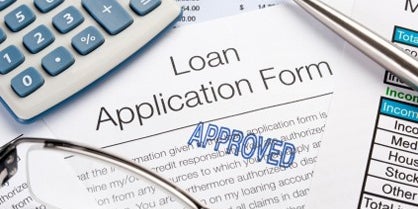Due to the collapse of the housing market, a new rule announced is aiming to prevent the return of high-risk no-document home loans. This has only happened now and for the very first time, federal regulators are enforcing out rules to make sure borrowers can afford to pay the cost of their mortgages. The Consumer Financial Protection Bureau will necessitate lenders to offer loans that don’t ensnare borrowers. Late this yaer or early next year if the new law takes effect, upfront fees will be limited and interest-only loans will be curtailed. Lenders would be obligatory to verify and inspect borrowers’ financial records.
Today’s current strict credit standards would not tighten but the new rules are intended the kind of no-holds-barred lending that was seen during the housing bubble before 2008. Loading homeowners with burdensome loan payments would do anymore; financial firms are banned to do so. They cannot require the borrower to pay the total more than 43 percent of their income. But this on the other hand could make it harder for people with lower incomes to qualify for a mortgage if banks are tempted to ease their requirements.
According to the Mortgage Bankers Association, four out five home loans are now “re-fi’s.” Most 30-year fixed rate mortgages are close to record lows and are well under 4 percent. A cheap rate can make a big difference over time. “At the end of 30 years you can save thousands upon thousands of dollars in total interest,” says Pat Esswein of Kiplinger’s Personal Finance. Refinancing usually makes sense “if you will stay in your home long enough to recoup the closing costs that you have to pay to do the re-fi.” To calculate re-financing costs and long term savings, Esswein says “go to an online mortgage payment calculator and see what you can save by reducing your interest rate.” The rumble in re-financed mortgages is projected to continue this year.
The fresh system seek out a middle ground by protecting consumers from bad loans while giving banks the legal assurances they need to increase lending. Teaser rates that adjust upwards and large "balloon payments" that must be made at the end of the loan period are rules bound features. Lenders will be obliged to confirm and check borrowers' financial records. They generally will be prohibited from saddling borrowers with loan payments totaling 43 percent of the person's annual income.
Balloon payments would be allowed for certain small lenders that operate in rural or underserved communities, because other loans may not be available in those areas
Today’s current strict credit standards would not tighten but the new rules are intended the kind of no-holds-barred lending that was seen during the housing bubble before 2008. Loading homeowners with burdensome loan payments would do anymore; financial firms are banned to do so. They cannot require the borrower to pay the total more than 43 percent of their income. But this on the other hand could make it harder for people with lower incomes to qualify for a mortgage if banks are tempted to ease their requirements.
According to the Mortgage Bankers Association, four out five home loans are now “re-fi’s.” Most 30-year fixed rate mortgages are close to record lows and are well under 4 percent. A cheap rate can make a big difference over time. “At the end of 30 years you can save thousands upon thousands of dollars in total interest,” says Pat Esswein of Kiplinger’s Personal Finance. Refinancing usually makes sense “if you will stay in your home long enough to recoup the closing costs that you have to pay to do the re-fi.” To calculate re-financing costs and long term savings, Esswein says “go to an online mortgage payment calculator and see what you can save by reducing your interest rate.” The rumble in re-financed mortgages is projected to continue this year.
The fresh system seek out a middle ground by protecting consumers from bad loans while giving banks the legal assurances they need to increase lending. Teaser rates that adjust upwards and large "balloon payments" that must be made at the end of the loan period are rules bound features. Lenders will be obliged to confirm and check borrowers' financial records. They generally will be prohibited from saddling borrowers with loan payments totaling 43 percent of the person's annual income.
Balloon payments would be allowed for certain small lenders that operate in rural or underserved communities, because other loans may not be available in those areas
